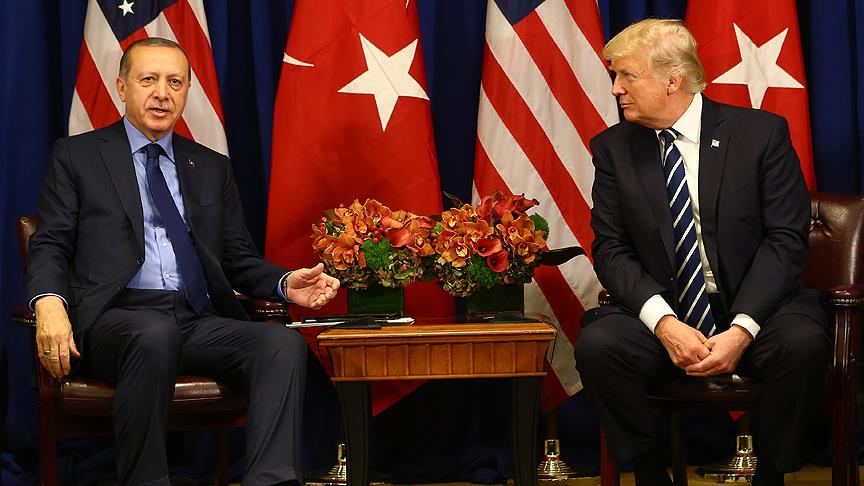
Turkey wants to normalize relations, while US does not
The U.S. providing shelter to FETÖ members and weapons to the PKK-affiliated terrorist group in Syria remain two main factors behind its frozen ties with Turkey
Share
t is really hard to understand what conception the U.S. has of Turkey when looking at it from Turkey. On the one hand, there is the image of a U.S. that does not want to lose Turkey, while on the other, a U.S. that is engaged in a war of attrition against Turkey. At the beginning of this week, a phone conversation took place between U.S. President Donald Trump and President Recep Tayyip Erdoğan. This call between the two leaders caused great hope and excitement for Turkey, because in this conversation, President Trump said the U.S. would stop its weapons aid to the People's Protection Units (YPG), which was understood by the Turkish side that the U.S. would also be stopping its political support to the YPG and that the U.S. would begin to listen to Turkey's priorities. However, a short time after this call, the Pentagon stepped in and gave a message that basically said, "Things don't work like that with us."
U.S. Department of Defense spokesman Eric Pahon gave a statement that almost cast Trump as a liar, saying, "We will continue our partnership with the Syrian Democratic Forces [SDF] of which the YPG is a part." This statement basically shed light on the continuing power struggle in the U.S. Following this statement, U.S. Secretary of State Rex Tillerson painted a larger framework related to Turkey's position, stating: "We ask Turkey as a NATO ally to prioritize the common defense of its treaty allies. Iran and Russia cannot offer the Turkish people the economic and political benefits that membership in the Western community of nations can provide."
On top of all this, another event that could affect Turkish-American relations occurred, namely, the case of breaching the sanctions on Iran. The case began to be heard in court two days ago. It is an extremely political case that will directly affect Turkish-American relations. One side of the issue is undoubtedly about the U.S. sanctions on Iran and American law. But we all know that the issue is much more than just this. The anti-Turkish lobby in the U.S. gives this case great credence and is trying to create the image that President Erdoğan is being tried in an international court. This is an extremely dangerous approach that aims at fully destroying the root of Turkish-American relations. At the root of connecting this case to Erdoğan is the U.S.-based Gülenist Terror Group (FETÖ). And it is already well known that there are many in Washington who are more than willing to pander to this anti-Erdoğan approach. There are also serious problems about the case from the Turkish perspective.
Above all else, the evidence that has been provided for the case was illegally taken out of Turkey; this is known by everybody and is a serious breach of international law. In other words, evidence that was forged by prosecutors and police belonging to FETÖ has been given to the prosecutor of another country, and this prosecutor is building his case based on it. Neither Erdoğan nor Turkey are being judged in this case, but there are many actors in Washington who want to use this case politically.
It is not to anyone's benefit to base this case on an anti-Erdoğan perspective and drag bilateral relations to an interminable crisis. As long as the perpetrator of the July 15 attempted coup, FETÖ, and its leader Fetullah Gülen are protected in the U.S. and a legal mechanism is brought against Turkey based on his theses, it does not seem possible for Turkish-American relations to normalize. In such an environment, don't the U.S. secretary of state's words seem like a luxury and meaningless? Unfortunately, there is nothing that allying with the U.S. brings to Turkey's security priorities, the fight against terrorism and economic development. Turkey continues to insist on normalizing relations with the U.S. However, I don't think this is an attitude that can be maintained for much longer.
[Daily Sabah, 30 November 2017]
Tags »
Related Articles






